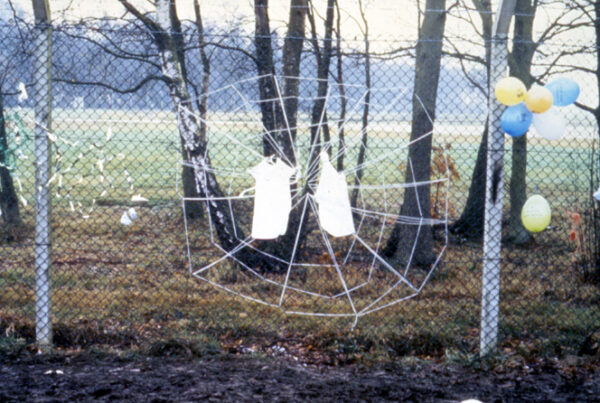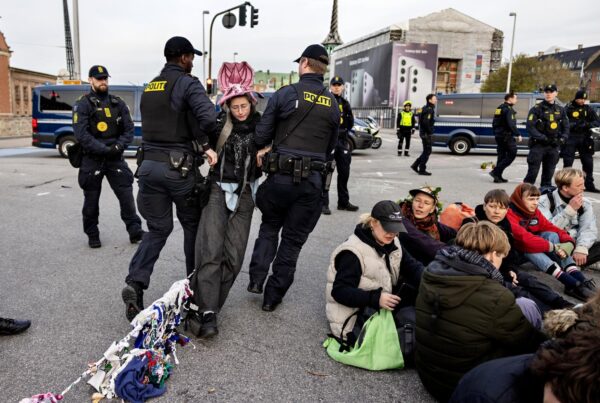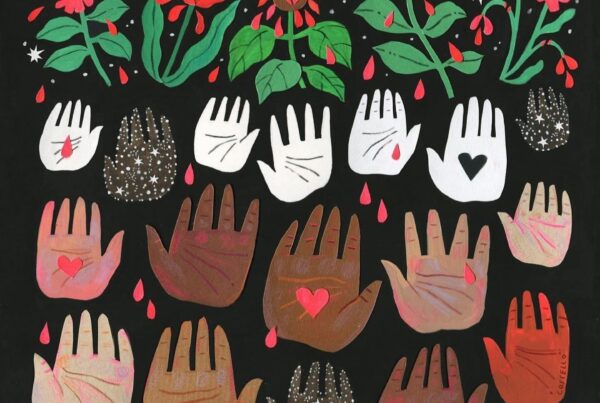A contribution to student encampments for Palestinian liberation.*
“This obscure feeling that you had as you left Gaza,
this small feeling must grow into a giant deep within
you. It must expand, you must seek it in order to find
yourself, here among the ugly debris of defeat.
I won’t come to you. But you, return to us! Come
back, to learn from Nadia’s leg, amputated from the
top of the thigh, what life and what existence is worth.
Come back, my friend! We are all waiting for you.”
Ghassan Kanafani (1956)

Background: Longue durée of Palestinian liberation and political ecologies of resistance to settler-colonialism
- Salamanca, O. J., Qato, M., Rabie, K., & Samour, S. (2012). Past is present: Settler colonialism in Palestine. Settler colonial studies, 2(1), 1-8.
- Pellow, D. (2017) Chapter 4: The Israel/Palestine Conflict as an Environmental Justice Struggle, in What is critical environmental justice?. John Wiley & Sons.
- Ajl, M. (2024). Palestine’s Great Flood: Part I. Agrarian South: Journal of Political Economy, DOI: 10.1177/22779760241228157.
- Malm, A. (2024) The Destruction of Palestine Is the Destruction of the Earth, https://www.versobooks.com/blogs/news/the-destruction-of-palestine-is-the-destruction-of-the-earth
- Salamanca, O.J., Khosla, P. & Aruri, N. (2024) Intervention — “It’s been 164 Days and a Long Century: Notes on Genocide, Solidarity, and Liberation. Antipode Online. https://antipodeonline.org/2024/04/11/notes-on-genocide-solidarity-and-liberation/
Environments of Palestine
- ENTITLE in Palestine (2015) The Political Ecology of Everyday Life under Settler Colonialism I – Reporting from Palestine, https://undisciplinedenvironments.org/2015/09/02/the-political-ecology-of-everyday-life-under-settler-colonialism-i-reporting-from-palestine/
- Isaac, J. & Hilal, J. (2011) Palestinian landscape and the Israeli–Palestinian conflict, International Journal of Environmental Studies, 68:4, 413-429, DOI: 10.1080/00207233.2011.582700
- Jaber, D. A. (2018): Settler colonialism and ecocide: case study of Al-Khader, Palestine, Settler Colonial Studies, DOI:10.1080/2201473X.2018.148712700207233.2011.582700
- al-Butmeh, A., al-Shalalfeh, Z., Zwahre, M., & Scandrett, E. (2019). The environment as a site of struggle against settler-colonisation in Palestine. In Harley, A., & Scandrett, E. (eds.). Environmental Justice, Popular Struggle and Community Development. Policy Press (pp. 153-172).
- Forensic Architecture (2024) ‘No Trace of Life’: Israel’s Ecocide in Gaza 2023-2024, https://forensic-architecture.org/investigation/ecocide-in-gaza
- Qumsiyeh, M. B (2024) Impact of the Israeli military activities on the environment, International Journal of Environmental Studies, 81:2, 977-992, DOI: 10.1080/00207233.2024.2323365
- Braverman, I. (2024). Frontier ecologies: Israel’s settler colonialism in the Jawlan-Golan. Political Geography, 111, 103073.
- Molavi, S. C. (2024) Environmental Warfare in Gaza: Colonial Violence and New Landscapes of Resistance, Pluto Press.
- Salamanca, O.J. (2024) “Because of the Land”: Insurgent Infrastructures of Social Reproduction in Palestine. In: The Undisciplined Environments Collective (Eds.) Insurgent Ecologies: Between Environmental Struggles and Postcapitalist Transformations, pp. 26-46. Halifax: Fernwood Publishing.
Climate in Palestine
- Bigger, P. et al. (2024) Ceasefire now, ceasefire forever: No climate justice without Palestinian freedom and self-determination, Climate and Community Project, DOI: 10.13140/RG.2.2.27376.43527
- Mason, M., Zeitoun, M., & Mimi, Z. (2012). Compounding vulnerability: impacts of climate change on Palestinians in Gaza and the West Bank. Journal of Palestine Studies, 41(3), 38-53.
Water in Palestine
- Hafez, Y. and Dhenin, M. (2024) Palestine’s Jordan River Drained of Water and Livelihood, https://atmos.earth/palestines-jordan-river-drained-of-water-and-livelihood/
- Alatout, S. (2006). Towards a bio-territorial conception of power: Territory, population, and environmental narratives in Palestine and Israel. Political Geography, 25(6), 601-621.
- Selby, J. (2003). Dressing up domination as ‘cooperation’: The case of Israeli-Palestinian water relations. Review of International Studies, 29(1), 121-138.
- Braverman, I. (2020). Silent springs: The nature of water and Israel’s military occupation. Environment and Planning E: Nature and Space, 3(2), 527-551.
- Beltrán, M. J., & Kallis, G. (2018). How does virtual water flow in Palestine? A political ecology analysis. Ecological Economics, 143, 17-26.
- Trottier, J., & Perrier, J. (2018). Water driven Palestinian agricultural frontiers: The global ramifications of transforming local irrigation. Journal of Political Ecology, 25(1), 292.
Land, Food and Commons in Palestine
- Quiquivix, L. (2013) When the Carob Tree Was the Border: On Autonomy and Palestinian Practices of Figuring it Out, Capitalism Nature Socialism, 24:3, 170-189, DOI: 10.1080/10455752.2013.815242
-
Alkhalili, N. (2017). Enclosures from below: The Mushaa’in contemporary Palestine. Antipode, 49(5), 1103-1124.
Grosglik, R., Handel, A., & Monterescu, D. (2021). Soil, territory, land: The spatial politics of settler organic farming in the West Bank, Israel/Palestine. Environment and Planning D: Society and Space, 39(5), 906-924.
- Sayrafi, I. (2022). Political Ecology and the Social Solidarity Economies within the Power Matrix in Rural Palestine. Center for Development Studies – Birzeit University.
- Henderson, C. (2024). Israel’s weapon of hunger in Gaza, https://peasantjournal.org/news/israel%E2%80%99s-weapon-of-hunger-in-gaza/
Waste in Palestine
- Perrier, J. (2021). Land defenders, infrastructural violence and environmental coloniality: Resisting a wastewater treatment plant in East Nablus. In Environmental Defenders (pp. 198-217). Routledge.
- Stamatopoulou-Robbins, S. C. (2021). Failure to build: Sewage and the choppy temporality of infrastructure in Palestine. Environment and Planning E: Nature and Space, 4(1), 28-42.
- Garb, Y., & Leblond, N. (2024). Flowing toxics: E-waste field work in the Palestinian-Israeli space. Environment and Planning C: Politics and Space, 42(1), 45-63.
- Stamatopoulou-Robbins, S. (2019). Waste siege: the life of infrastructure in Palestine. Stanford University Press
- Baumann, H., & Massalha, M. (2022). ‘Your daily reality is rubbish’: Waste as a means of urban exclusion in the suspended spaces of East Jerusalem. Urban Studies, 59(3), 548-571.
Urban Palestine
- Abujidi, N., & Verschure, H. (2006). Military occupation as urbicide by “construction and destruction”: The case of Nablus, Palestine. The Arab World Geographer, 9(2), 126-154.
- Alkhalili, N. (2019). ‘A forest of urbanization’: Camp Metropolis in the edge areas. Settler Colonial Studies, 9(2), 207-226
- Joudah, N. (2020) Gaza as Site and Method: The Settler Colonial City Without Settlers, https://antipodeonline.org/2020/08/24/gaza-as-site-and-method/
- Abu Hatoum, N. (2021). For “a no-state yet to come”: Palestinian urban place-making in Kufr Aqab, Jerusalem. Environment and Planning E: Nature and Space, 4(1), 85-108.
- Golańska, D. (2022). Slow urbicide: Accounting for the shifting temporalities of political violence in the West Bank. Geoforum, 132, 125-134.
- Salamanca, O. J., & Silver, J. (2022). In the excess of splintering urbanism: The racialized political economy of infrastructure. Journal of Urban Technology, 29(1), 117-125.
- Azzouz, A. (2024). Erased city. City: Analysis of Urban Change, Theory, Action, 28(1-2), 1-6. DOI: doi.org/10.1080/13604813.2024.2323388
More-Than-Human Palestine
- Sasa, G. (2023). Oppressive pines: Uprooting Israeli green colonialism and implanting Palestinian A’wna. Politics, 43(2), 219-235.
- Amira, S. (2021). The slow violence of Israeli settler-colonialism and the political ecology of ethnic cleansing in the West Bank. Settler Colonial Studies, 11(4), 512-532.
- Salih, R., & Corry, O. (2022). Displacing the Anthropocene: Colonisation, extinction and the unruliness of nature in Palestine. Environment and Planning E: Nature and Space, 5(1), 381-400.
- Sharif, L. (2015). Savory colonialism: Land, memory, and the eco-occupation of Palestine. Journal of Middle East Women’s Studies, 11(2), 256-257.
- Sezer, J. (2023). Sustaining Resistance, Cultivating Liberation: The Enduring Bond of Rooted-Resistance-Companionship between Palestinians and Olive Trees, https://studenttheses.uu.nl/handle/20.500.12932/44436
- Qumsiyeh, M.B., Abusarhan, M.A. (2021). Biodiversity and Environmental Conservation in Palestine. In: Öztürk, M., Altay, V., Efe, R. (eds) Biodiversity, Conservation and Sustainability in Asia. Springer, Cham.
- Adolfsson, J. (2023). A new storm over the Naqab: The temporality of space in Israeli settler colonialism, https://su.diva-portal.org/smash/record.jsf?pid=diva2%3A1717177&dswid=6293
Green Imperialism in Palestine
- Jung, W. And Wu, C. (2024) A Mirror of Our Immediate Future: On Green Imperialism and Palestine, https://magazine.scienceforthepeople.org/online/a-mirror-of-our-immediate-future/
- Hughes, S. S., Velednitsky, S., & Green, A. A. (2023). Greenwashing in Palestine/Israel: Settler colonialism and environmental injustice in the age of climate catastrophe. Environment and Planning E: Nature and Space, 6(1), 495-513.
- Shqair, M. (2023) Arab–Israeli Eco-Normalization: Greenwashing Settler Colonialism in Palestine and the Jawlan, in Hamouchene, H. and Sandwell, K. (eds). Dismantling Green Colonialism: Energy and Climate Justice in the Arab Region. Pluto Press. URL: https://openresearchlibrary.org/content/00f17fce-1221-4a50-bc6e-643d19f790f7
- Alkhalili, N., Dajani, M., & Mahmoud, Y. (2023). The enduring coloniality of ecological modernization: Wind energy development in occupied Western Sahara and the occupied Syrian Golan Heights. Political Geography, 103, 102871.
__
* This selection was curated by Ethemcan Turhan and is reproduced here with his permission. Last updated 28 May 2024.




